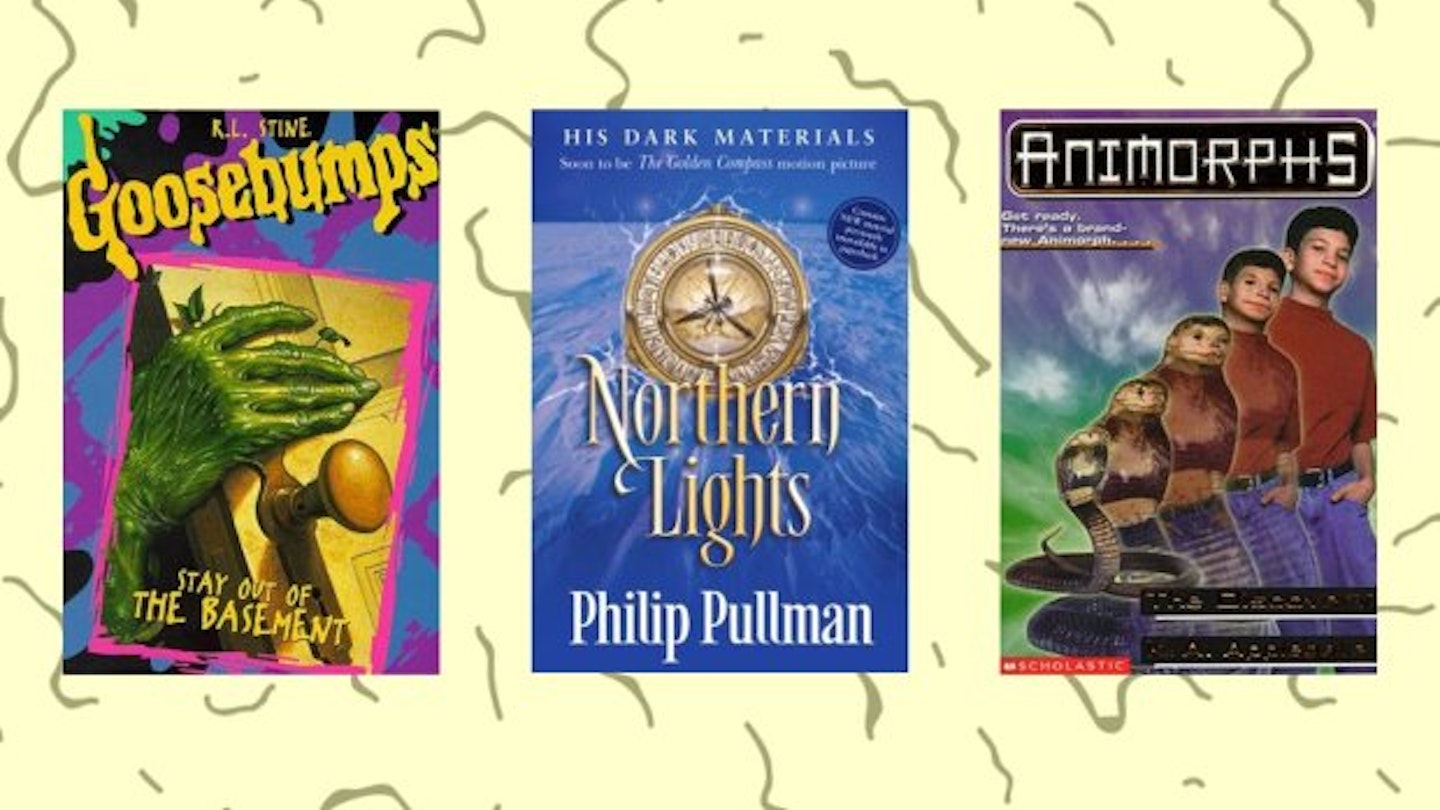There are some books that defined a decade: a decade of periods, pimples and alco-pops; a decade of furtive non-encounters with the opposite sex and legal highs punctuated with sudden, inexplicable plunges into despair.
And when, after years of wreaking havoc with our bodies, puberty spat us back out as (almost) adults, these books were still there. These are the stories that we’d look back on as having held our hands, tickled our tetchy teenage funny bone and maybe even shaped us along the way.
1. Tracy Beaker by Jacqueline Wilson
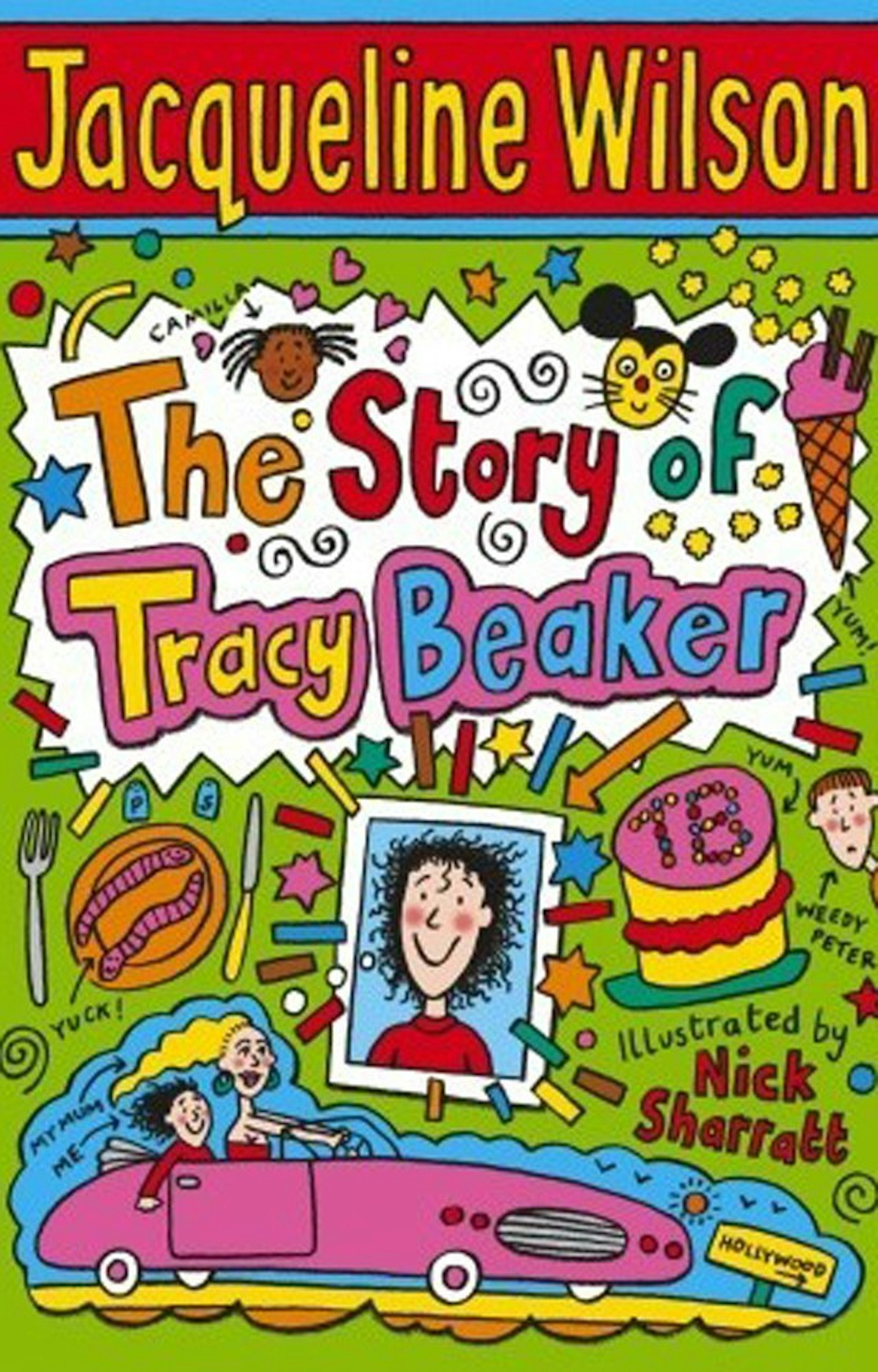
For some, it’s Double Act. For me, it’s the Suitcase Kid. For many, though, it’s the girl with the inimitable corkscrew curls and the sort of attitude that made you want to seize your parents, point to the page and cry ‘look! I could be as rude as her!’. Secretly though, you’re relieved you’re not Tracy Beaker, much as you admire her exploits. Being a teenager (as she is on the cusp of being when you meet her) is hard enough with your parents, let alone without them in a children’s home. We loved her — still do in fact, for who can claim, when they heard Jacqueline Wilson is releasing a fifth later this year, that they didn’t feel just the tiniest flicker of joy?
2. Bridget Jones’ Diary by Helen Fielding
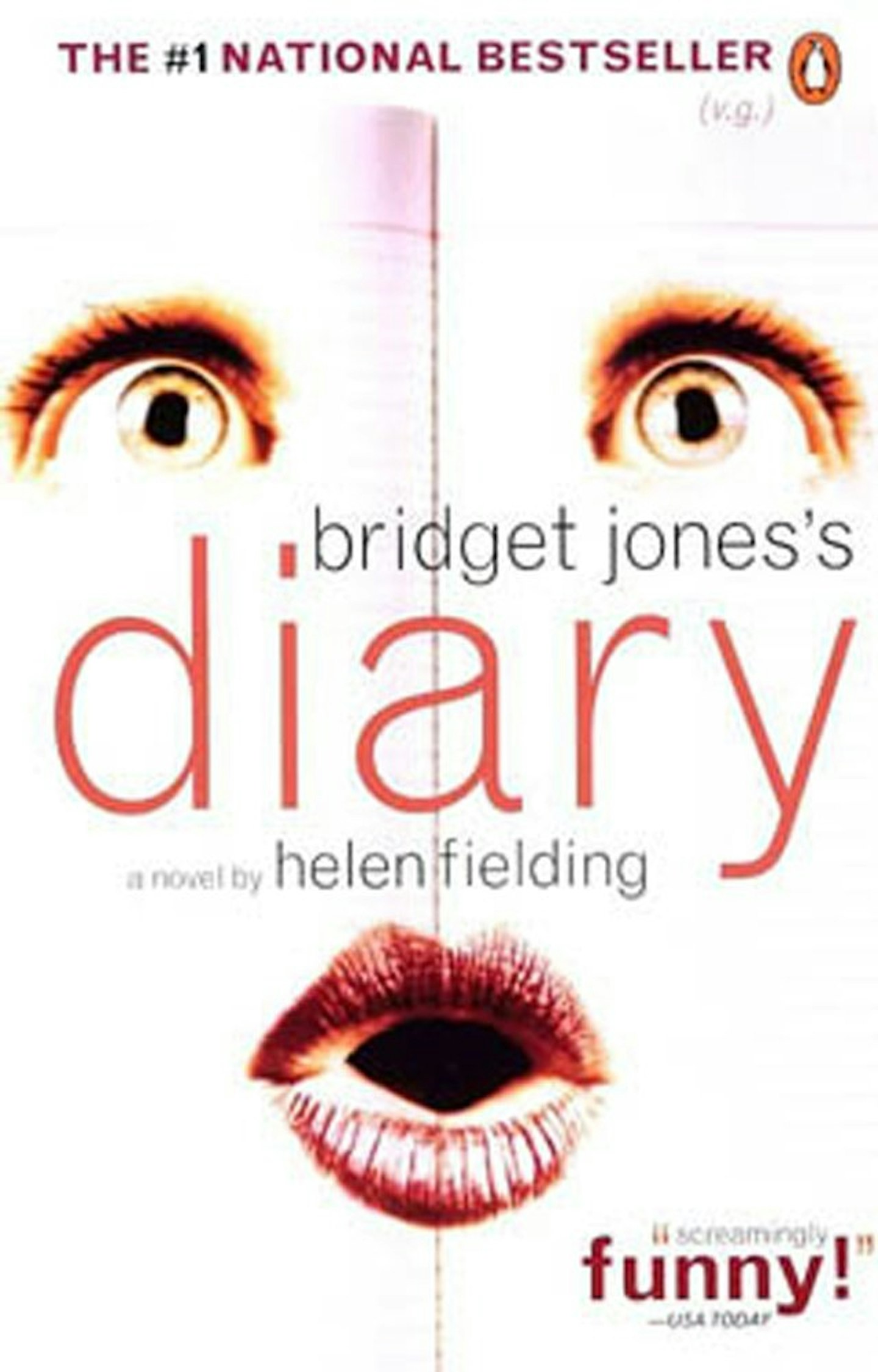
The first and, in my humble opinion, the best of Bridget hit our shelves in 1996. We were too young to appreciate it, but it didn’t stop us chuckling heartily at the gags that didn’t soar over our head —and pretending to chuckle at those that did. God bless those salad days when we didn’t know what 'alcoholics, workaholics, commitment phobics, misogynists, megalomaniacs, chauvinists, emotional fuckwits and freeloaders' even were, but still felt confident in our ability to avoid them: when being single at 30 was ludicrous and laughable fiction as opposed to a very real prospect, looming in front of us like the infamous blue soup.
3. Chicken Soup for the Soul by Jack Canfield and Mark Hansen* *
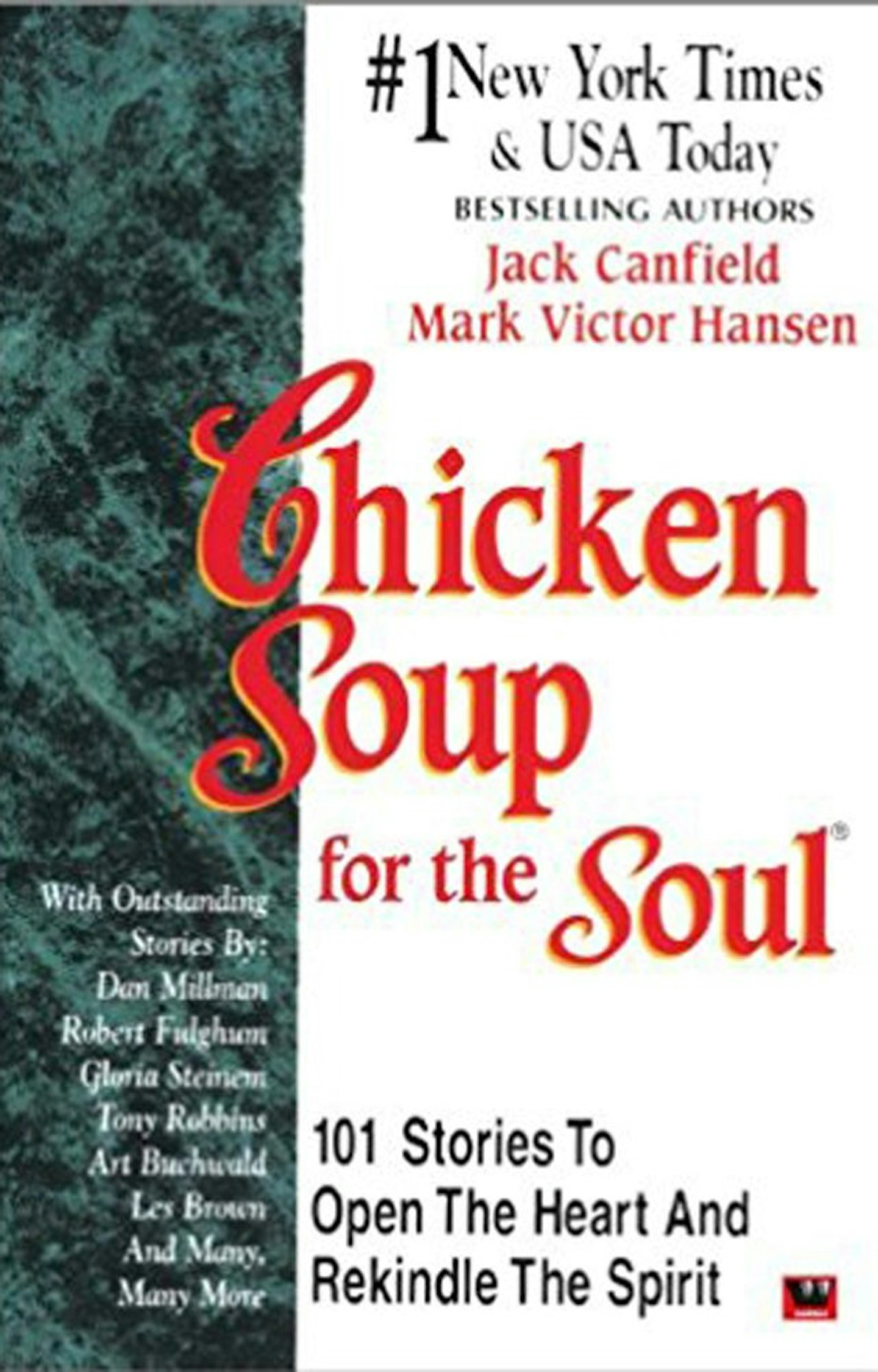
Speaking of soup: what school assembly would be complete without Chicken Soup for the Soul: the collection of TRUE STORIES that left you either wide-eyed with wonderment or reaching for the nearest vessel in which to vomit your discomfort at their unashamedly syrupy tone. Quite how, in a decade that boasted Nirvana, Clueless and Thatcher, we wound up with a series that claimed to be 'changing the world one story at a time®' (yup, that is a registered trade mark) is a question for the sociologists of the future. Chicken Soup got us out of sudden class presentations and school assemblies too many time for us to dismiss it completely— and we will confess to shedding a small, solitary tear for the story of Bopsy, the boy with leukaemia, and the firemen.
4. Forever by Judy Blume
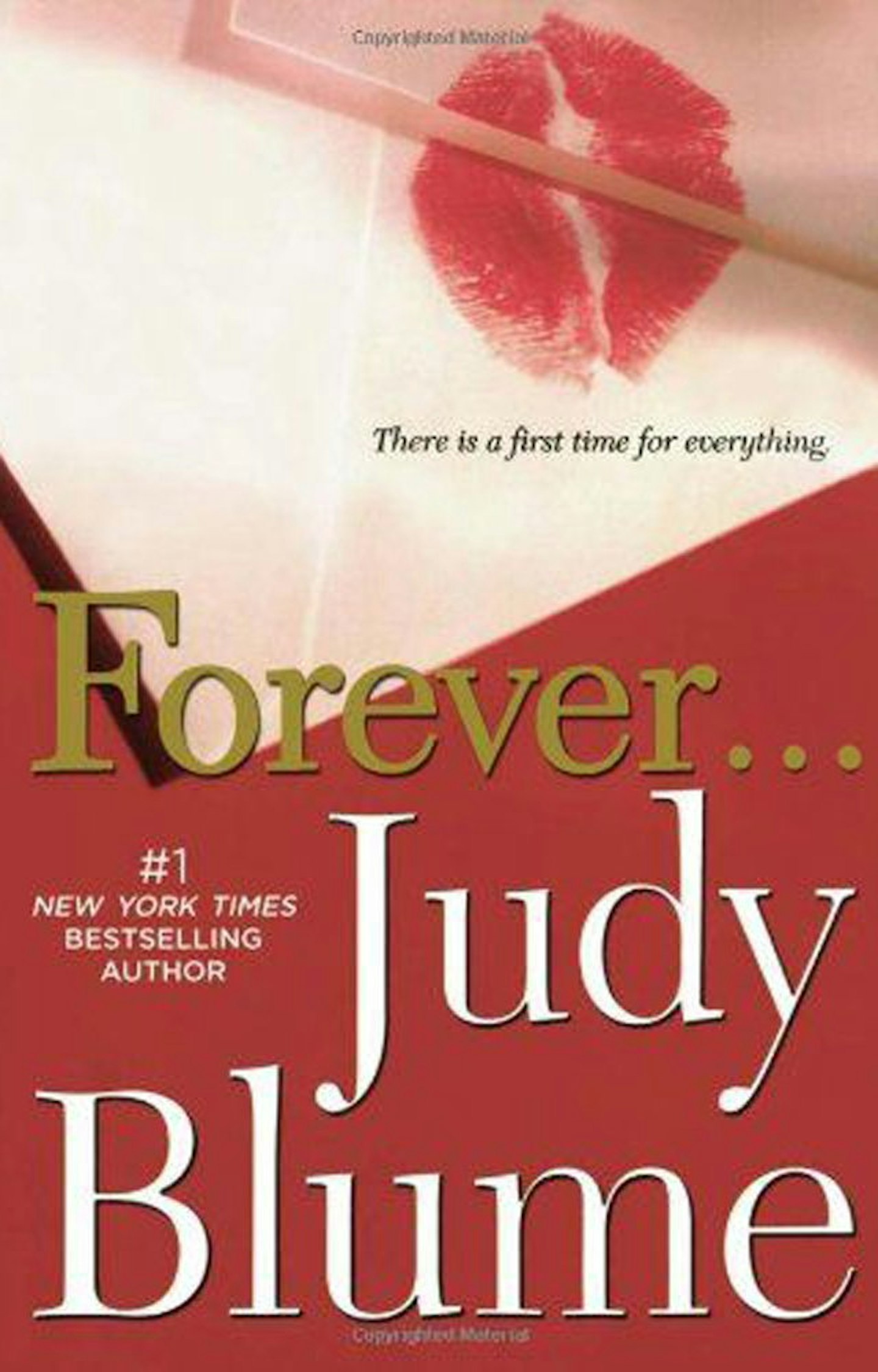
'In the library, on the revolving shelves near the door. You don’t need to read all of it — just flick to page 63.' This was the whisper that swept round the school playground, rendering the library copy of Judy Blume one of the most well thumbed (if you’ll pardon the expression) books in there. Did anyone read all of it? I got cold feet (and hot hands) after the first sex sentence, let alone a whole sex scene. You could even say my first sexual experience took place while I was hiding behind a shelf, a copy of Forever tucked within a Dorling Kindersley guide to Volcanoes. Still, it defined an era — and, in an all-girls school, opened our eyes to the curious practice some men have of naming their willies. Thank you, Ralph.
5. Animorphs by KA Applegate
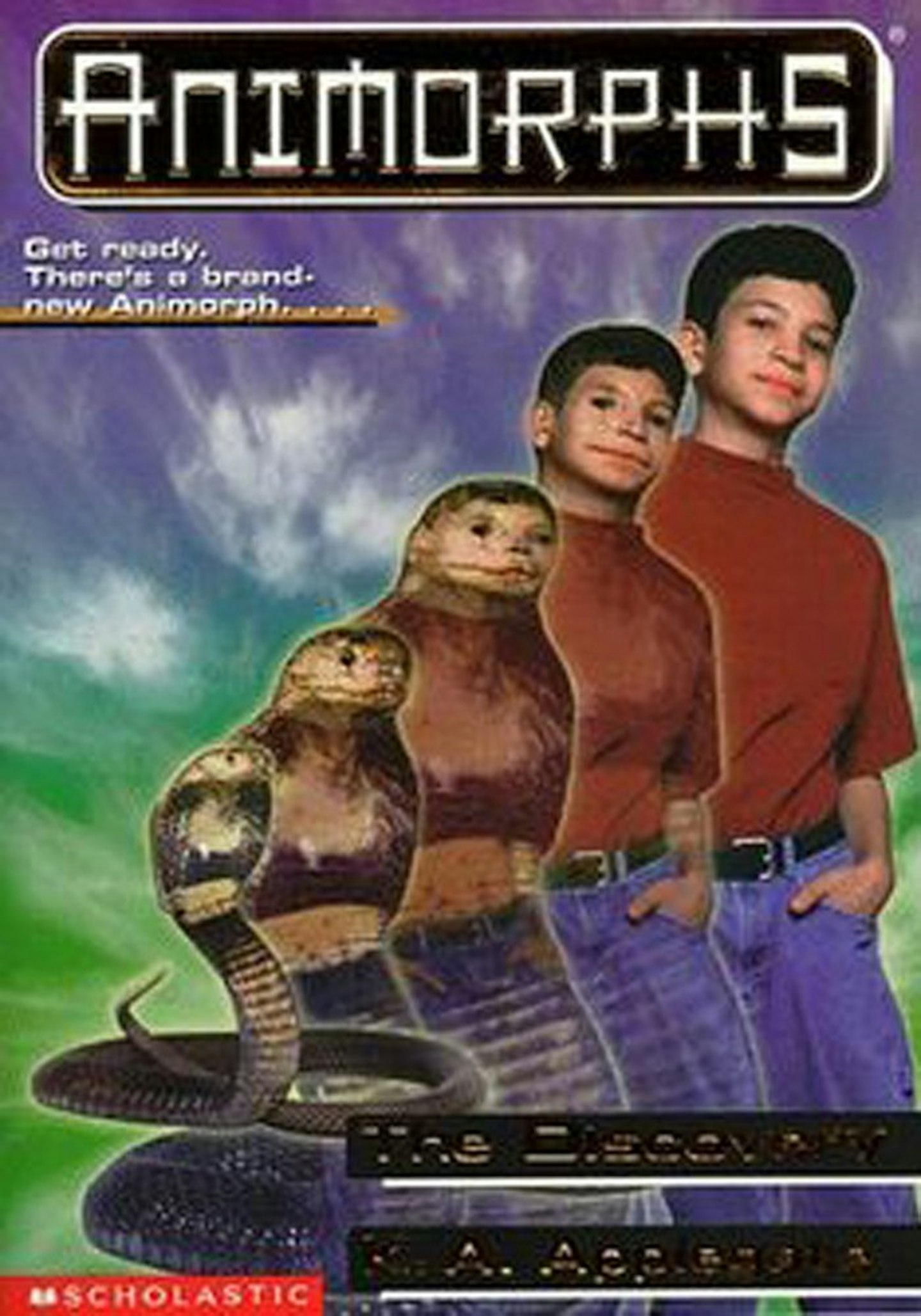
More than boyfriends, more than a swimming pool in the garden, more than long, straight blonde hair, I wanted to be an Animorph: a teenager with the ability to morph into any animal they touched. Specifically, I wanted to be Cassie, because her parents were vets and her battle creature was a wolf— but I’d have taken any of them, frankly. Oh, how I longed for their ability to fly, swim, climb and of course fight with the Yeerks: parasitic alien invaders who entered the brains of their host body through their ear canals. Even now, looking at certain world leaders, I catch myself wondering the Yeerk invasion of humanity could be real.
6. Northern Lights by Philip Pullman
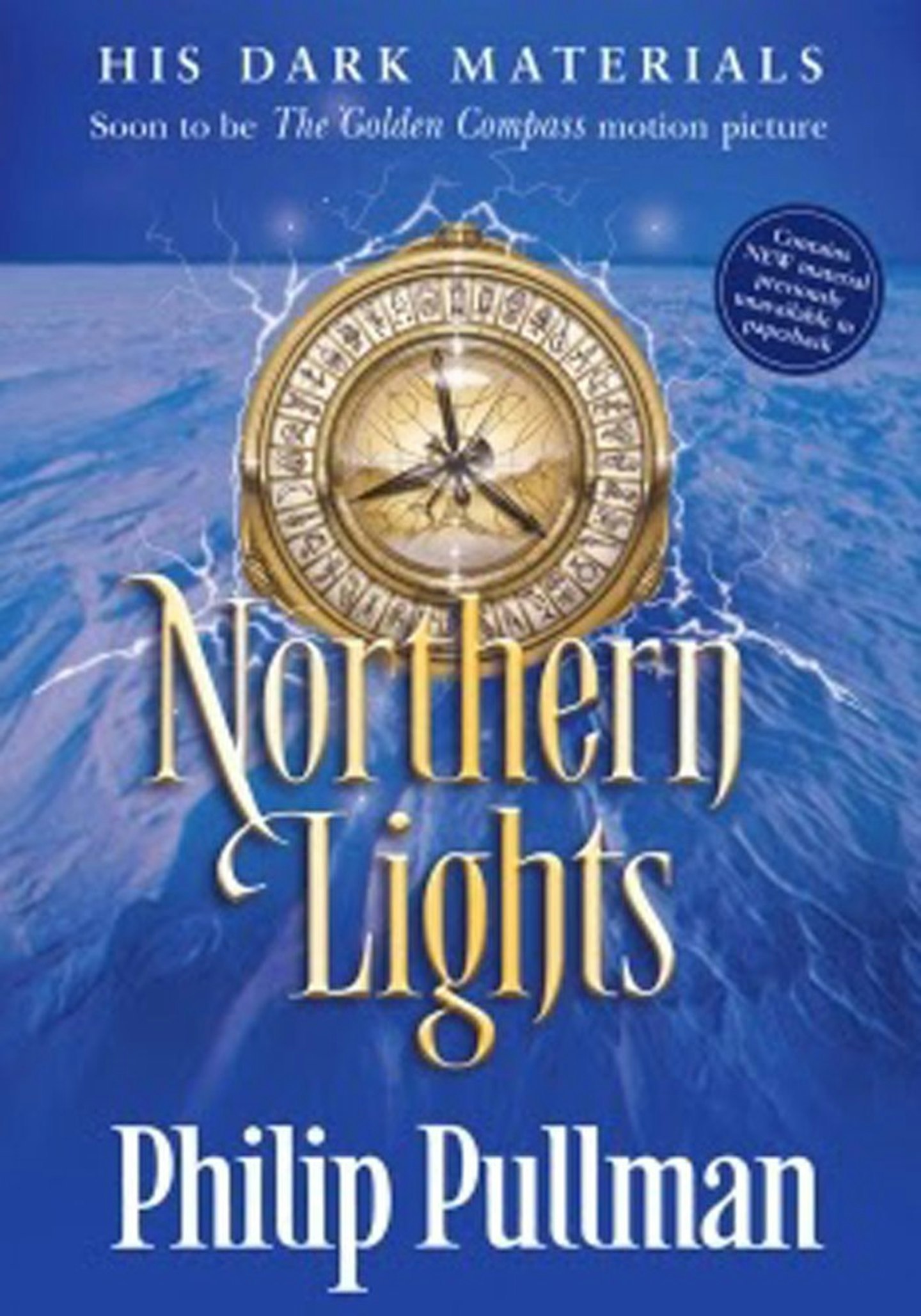
Full disclosure: when it comes to Pullman versus Potter, I’m in the latter’s camp. But that doesn’t mean I wasn’t a fully signed up addict to the adventures of Lyra and her daemon Pantalamion; or that I didn’t, like every teenager, earnestly wish we all had faithful spirit animals in real life. I read Northern Lights again recently, and it bears rereading. There’s so much I’d missed as a teenager, and I shivered as much at the severed children, the pitiless Gobblers, the brutal battle between the armour-clad polar bears, and the tingling, tragic ending as I did as a kid. There’s been much speculation as to Pullman’s theology: whether his Dark Materials should be considered as a harsh secular rebuttal of the Church and organised religion, or a modern day morality take on a par with Aesop. Make of that what you will, I say. It’s still a rollicking good read.
*7. Horrible Histories *by Terry Leary
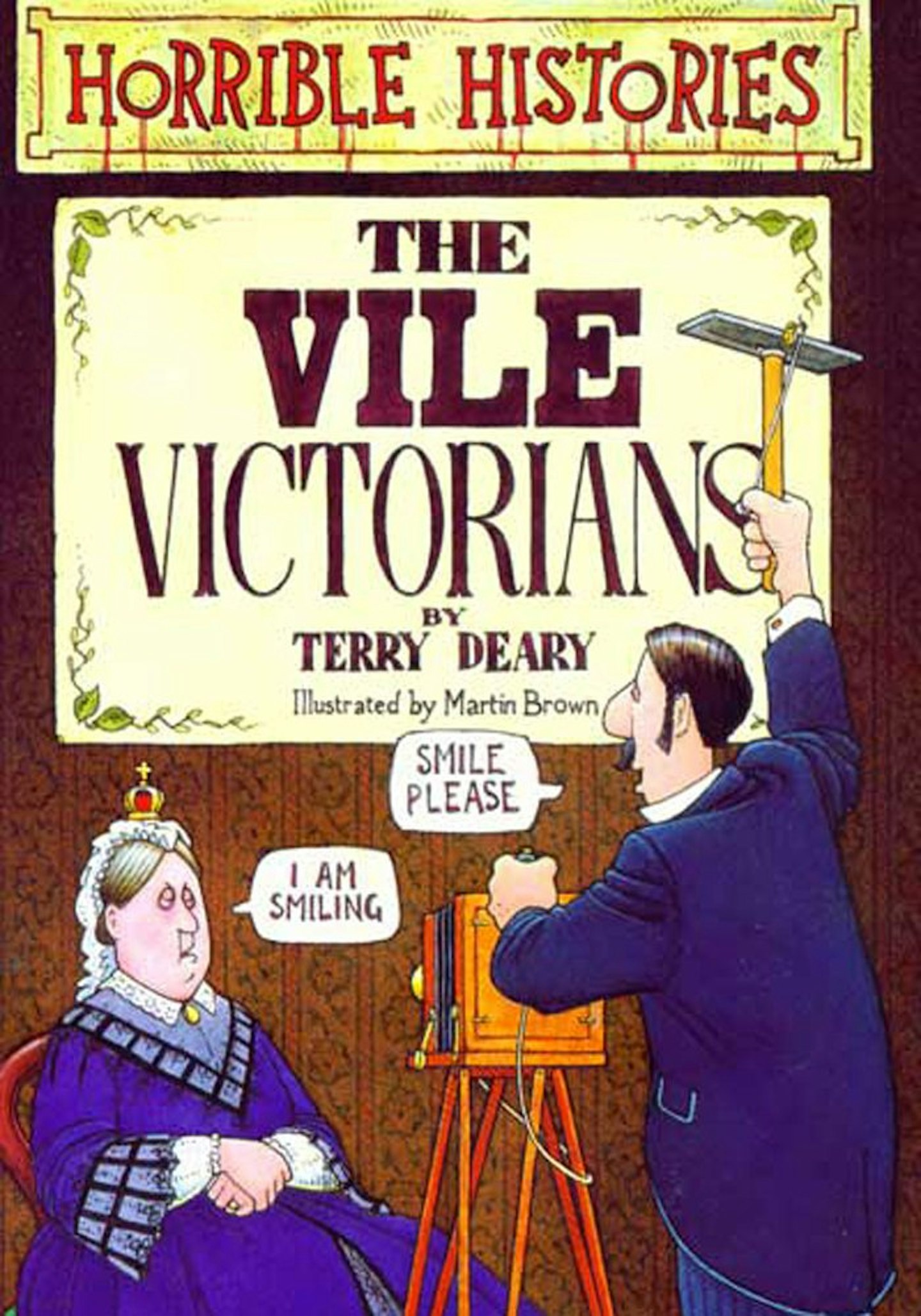
If nothing else, the Horrible Histories was a lesson in alliteration: Cut-throat Celts, Groovy Greeks, Rotten Romans, Vicious Vikings, Terrible Tudors and Vile Victorians peppered each Christmas and Birthday. Only the Awful Egyptians, with their lack of titular consistency, failed to please. Armed to the gunnels with the grossest of historical facts — 'did you know the Greek philosopher Heraclitus had an illness that made his body swell up with water, so he buried himself in warm animal poo to try to sweat it off but ended up overheating and dying of dehydration?' 'You know King Henry II had a jester called Roland le Farter whose only job was to entertain the king at Christmas by performing one jump, one whistle and one fart?' — I’d relay my findings to any adult I could hold down for long enough to explain the Roman’s vomiting rituals. Mining children’s bottomless appetite for toilet humour for all it was worth, Terry Leary could ignite an interest in history amongst even the most modern of kids.
8. Animal Ark by Lucy Daniels
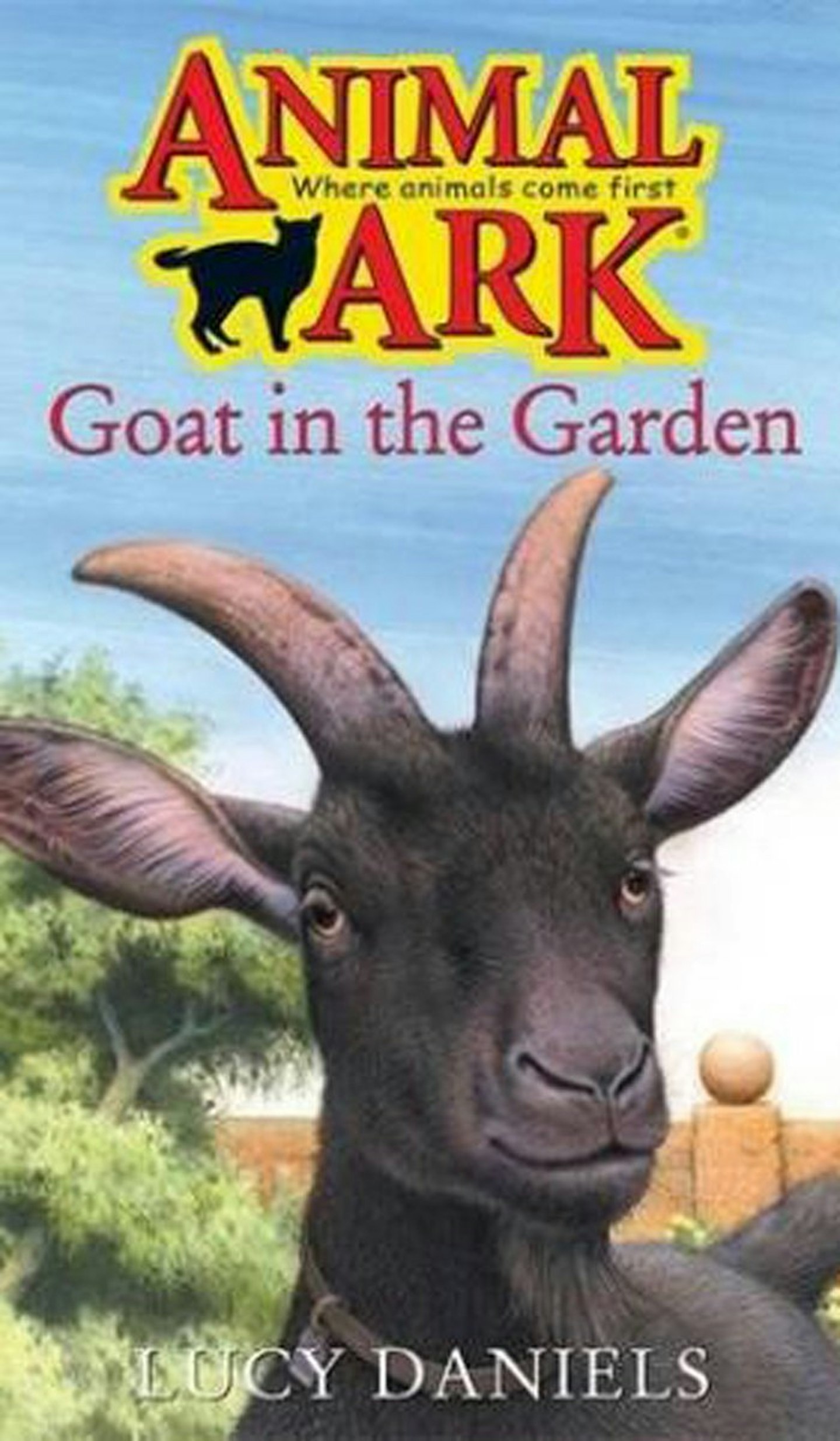
Puppies in the Pantry. Kittens in the Kitchen. Lamb in the Laundry. Piglet in a Playpen. By the time Lucy Daniels (or, rather, a variety of authors writing under a pseudonym) got to Otter in the Outhouse, her titles had become something of a running joke. ‘Possum in the plughole? Or Fish in the food processor?’ dad would ask, whenever I requested a story from vet daughter Mandy and her furry, feathered friends. Needless to say, they weren’t a literary high point of my early years — but there’s a still a sense of nostalgia attached to them. Even now, my dad or brother only have to whisper Bats in your Brassiere to make me laugh.
9. Goosebumps by R.L. Stein
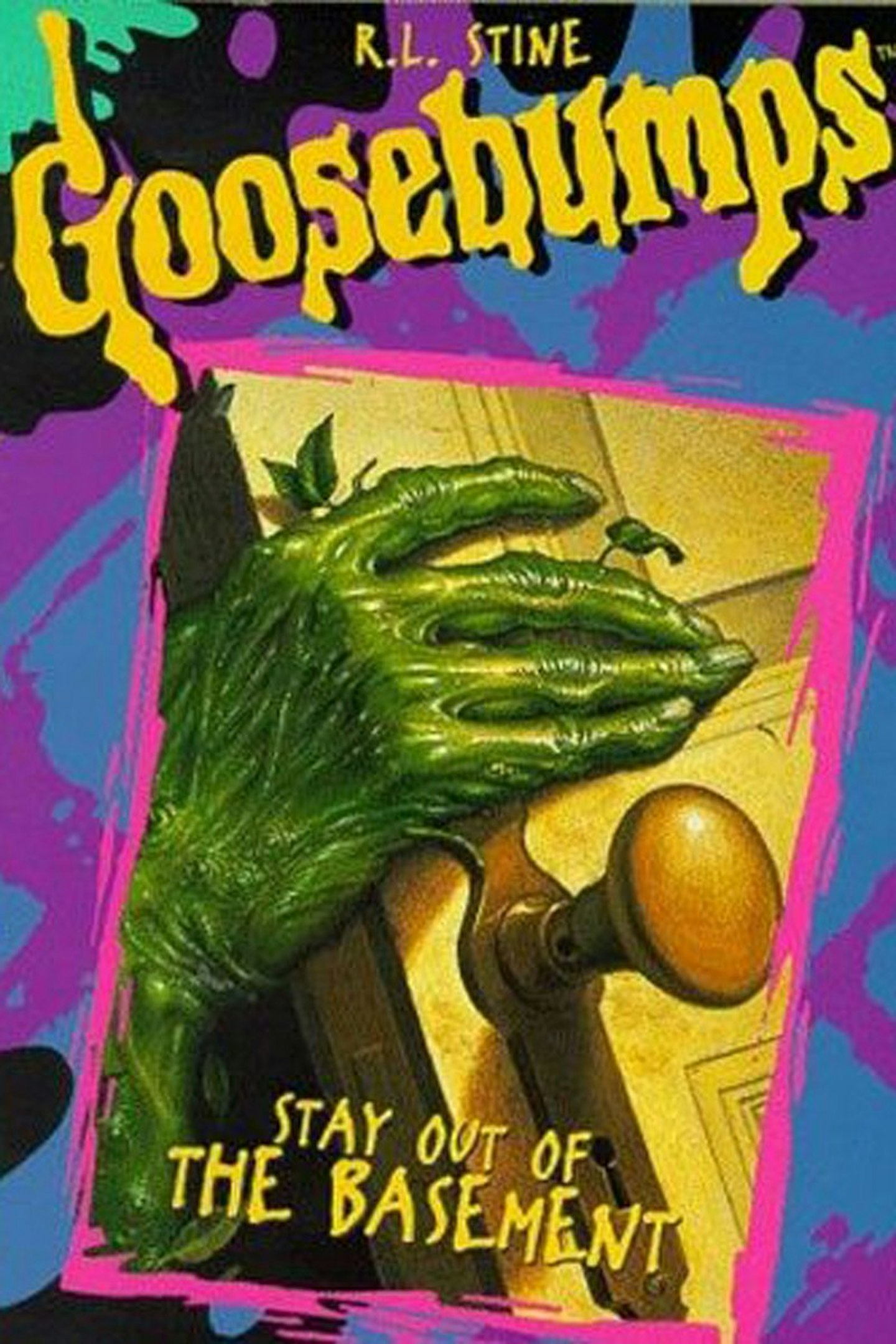
The dummy still keeps me awake at night — and don’t even get me started on the curse of camp cold lake. The mystery that such horrors were allowed to make it into children’s bedtime material is rivalled only by the mystery by which they made it onto the small screen. Still, in contrast to the drug and violence laden horror stories of today’s world, at least Stein’s world confined itself to the merely surreal.
**Like this? You might also be interested in...
Follow Clare on Twitter @finney_clare
This article originally appeared on The Debrief.
